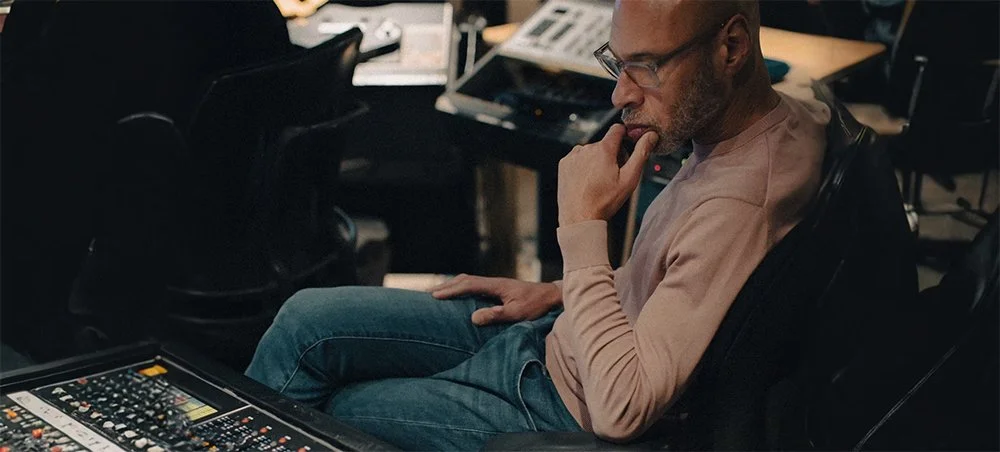ABOUT
Joshua Redman’s name resonates deeply in the jazz world as a gifted improvisor, a charismatic performer, and an insightful thinker on the nature and meaning of music.
The son of legendary saxophonist Dewey Redman and Renée Shedroff, a dancer and librarian, Joshua’s childhood was steeped in music, movement, storytelling and the written word. That influence is evident in the remarkable path he’s carved, blending emotion and intellect into a sound and style unmistakably his own.
After graduating summa cum laude from Harvard University and deferring his acceptance to Yale Law School, Redman moved to New York City, immersing himself once again in the world of the arts. Gigging and recording with some of the greatest musicians of all time – Charlie Haden, Elvin Jones, Jack DeJohnette, Joe Lovano, McCoy Tyner, Clark Terry, Milt Jackson, and his father, Dewey Redman, to name just a few – he found himself at the epicenter of the city’s thriving jazz scene. It was there that a true calling began to emerge.
In 1991, shy and reluctant, but encouraged by friends, Redman entered and won the Thelonious Monk Institute of Jazz International Competition, widely regarded as the preeminent event of its kind. The industry quickly took notice.
In 1992 he signed with Warner Bros. Records and a year later released his eponymous debut album, earning him a Grammy nomination—the first of ten across a distinguished career.
Redman’s first Quartet featured pianist Brad Mehldau, bassist Christian McBride, and drummer Brian Blade — some of the most influential musicians of their generation, who would go on to shape the future of the art form.
Throughout the 1990s, and well into the new century, Redman continued to refine his craft and expand his vision, releasing a string of acclaimed albums — some notable highlights being Wish (1993), Moodswing (1994), Spirit of the Moment (1995), Freedom in the Groove (1996), Elastic (2000), Back East (2007), Still Dreaming (2018), and where are we (2023).
His apprenticeships and collaborations read like a who's who of musical giants: Pat Metheny, Chick Corea, Roy Haynes, Roy Hargrove, Stevie Wonder, Meshell Ndegeocello, Quincy Jones, Herbie Hancock, The Rolling Stones, the Dave Matthews Band, Umphrey’s McGee, The Bad Plus, Brad Mehldau… A true testament to his versatility and wide respect among elders and peers alike.
Redman's creative reach extends beyond the stage and studio. His music has been featured in film and television, broadening his impact on the cultural landscape. He composed the original score for Louis Malle’s Vanya on 42nd Street (1994), contributed to Clint Eastwood’s Midnight in the Garden of Good and Evil (1997), and appeared in Robert Altman’s Kansas City (1996) and Ken Burns’ documentary series Jazz (2000–01).
In 1997 he brought his love of jazz to a new generation when he was featured on the beloved children’s show Reading Rainbow; and again, in 1999, when he voiced the character Uncle Josh on PBS’s Arthur, alongside legendary cellist Yo-Yo Ma.
As the Artistic Director of the SFJAZZ Spring Season (2000 - 2007) Redman ventured into the world of programming, presenting and curation. And within that same time span, as a founding member and musical director of the SFJAZZ Collective (2004 - 2007), Redman helped formulate and fulfill the group’s mission: to honor and celebrate great works of the modern jazz era, while at the same time serving as an essential incubator for the creation, development and performance of new music.
In 2019 he joined Stanford University as a Visiting Artist (and in 2025 was appointed Artist In Residence). Often eschewing conventional teaching methods, Redman encourages spontaneity, authenticity, and freedom of expression, all while respecting the enduring norms and exacting standards of an ever-evolving jazz language.
With a career spanning over three decades, Joshua Redman remains a vital force in contemporary jazz. A bridge between tradition and innovation, performance and mentorship, intellect and emotion. His music continues to invite listeners into a world where every note tells a story, and every beat becomes a shared moment of human connection.
